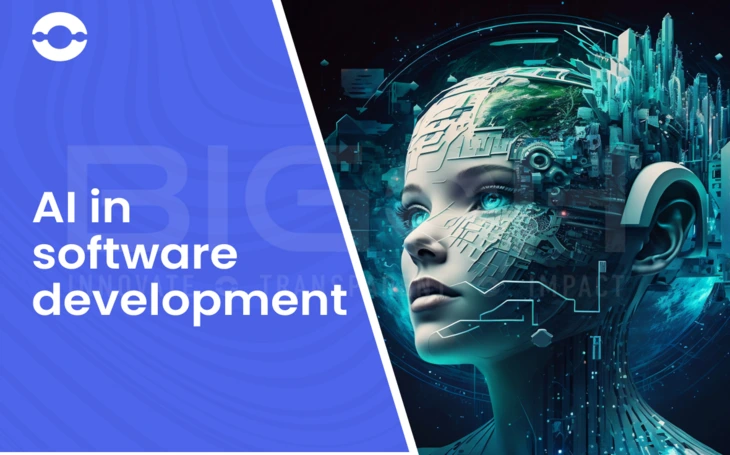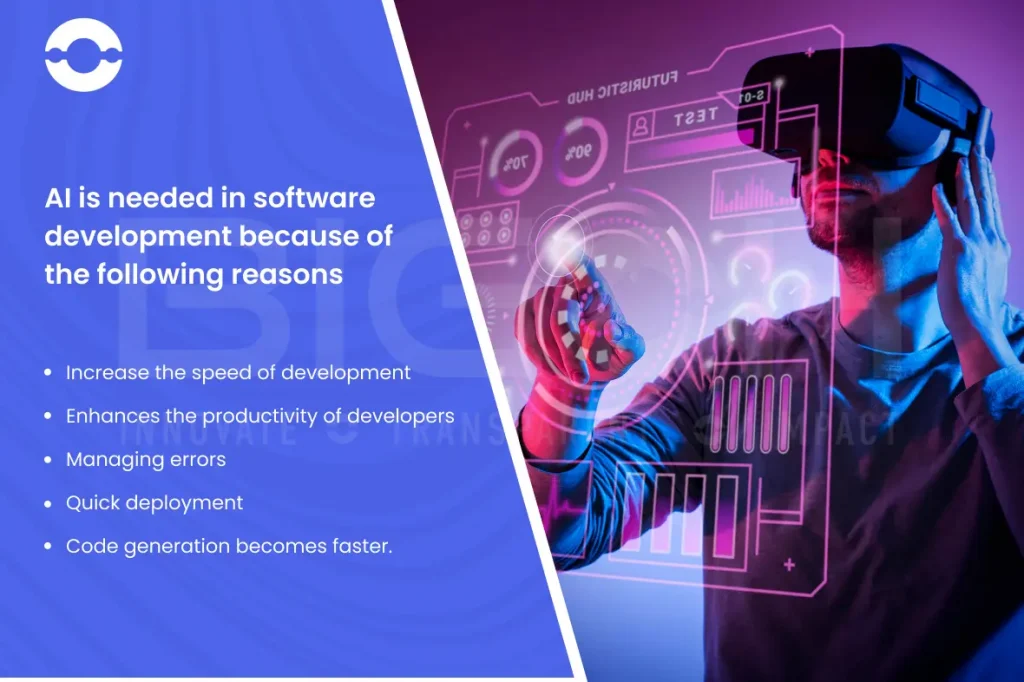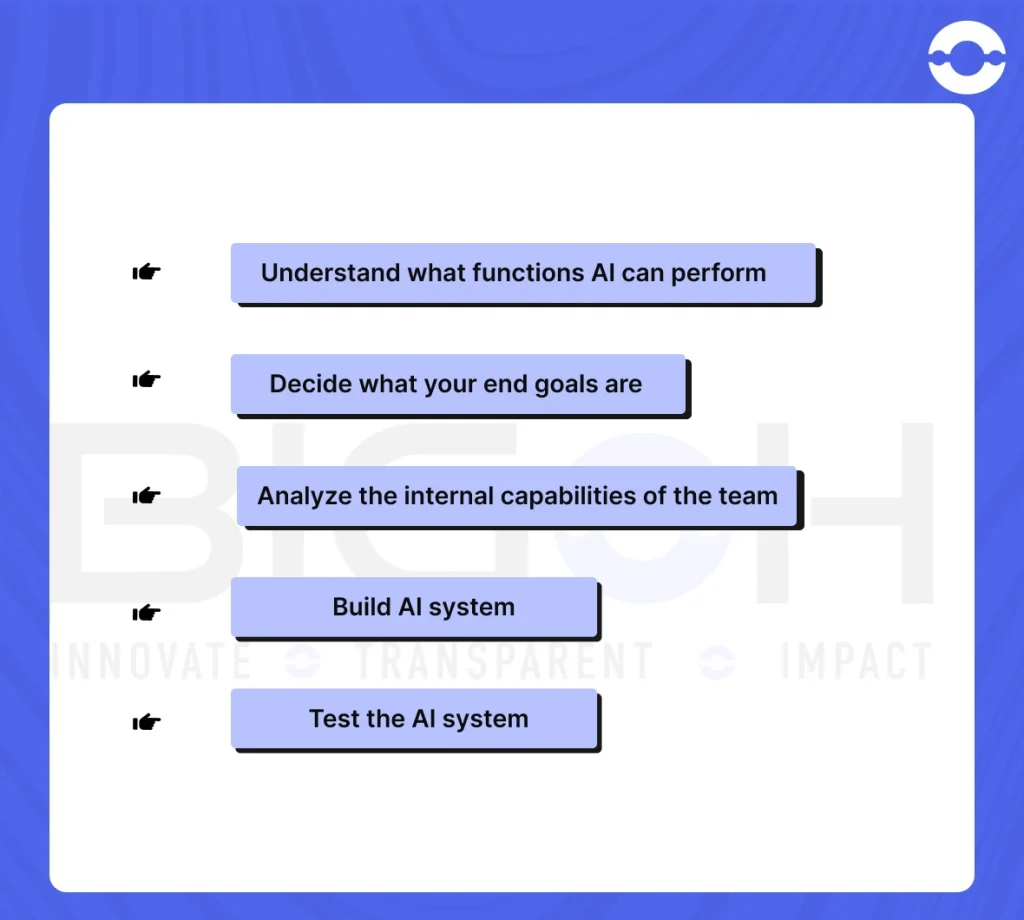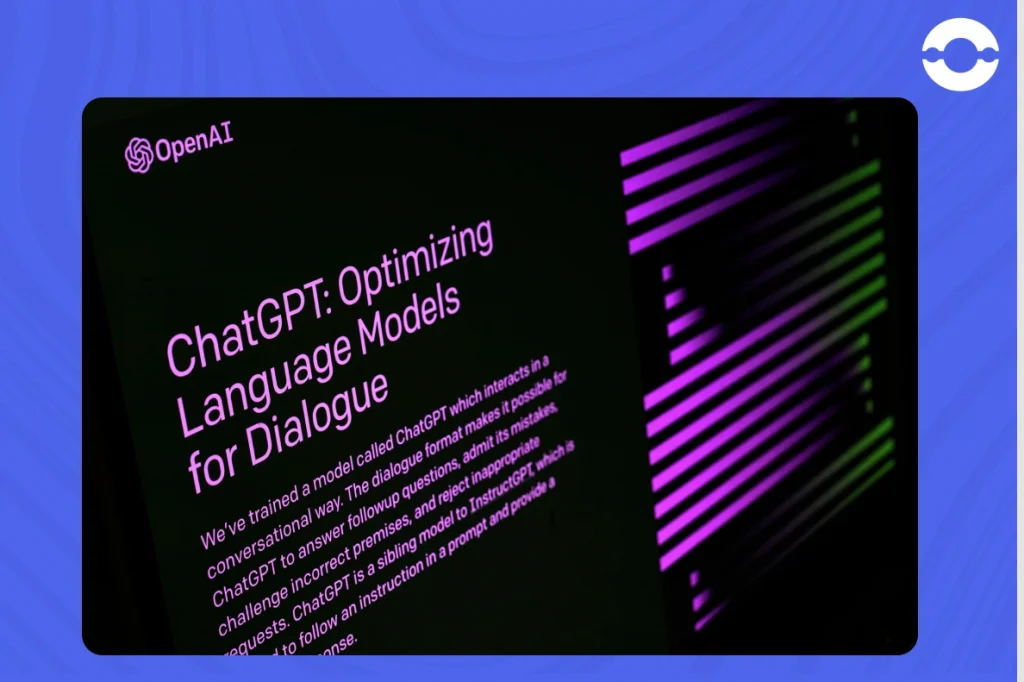
When you think of the term Artificial intelligence, various terms come to mind, be it robots, AI chatbots, self-driving cars, or artificially created images. The concept of AI needs no introduction as it has been there since the 1950s and has evolved significantly compared to the past few decades.
AI brought a revolution in the world, helping businesses to maximize their productivity and, at the same time, help them reduce their costs. AI has transformed the world by eliminating mundane and repetitive tasks and leaving space for humans to perform creative tasks effectively.
Not only that, but enterprises have also adopted various technologies in software development, and AI is never an exception. Software is rocking the world, ranging from Amazon doing drone deliveries to Snapchat coming with augmented reality filters.
In simple terms, AI is a branch of computer science wherein machines are trained to perform human-related tasks effectively and efficiently. AI machines are trained to perform like a human and mimic human-related tasks.
Need for AI in Software Development

1. Increases the Speed of Development
AI increases development speed and quality assurance analysts need not take the headache of manually testing the software. Now, AI can test the software automatically at various stages of development. Doing manual quality checks of software often has a high chance of errors.
Software testing is necessary to ensure that the product is of good quality. Hence, AI proves to be a goldmine for developers as it not only does accurate software testing but also shortens the development time.
2. Enhances the Productivity of Developers
Developers can utilize AI to do tedious, repetitive software or application tasks. After the developer comes up with a framework for the code, they can delegate the work to AI and focus on doing those tasks that AI cannot perform.
However, AI has no brain, as you cannot rely on AI to write an entire code from scratch; AI will work like an intern and support you in writing better codes together.
3. Managing Errors
One of the prominent reasons for downtime in software is that software contains many bugs.
If you are running software as a service or a cloud-based service business, a few seconds of downtime in software cannot be compromised as it would tarnish your company’s reputation. Eventually, you would lose hundreds of existing customers.
Manually checking roadblocks in software is a time-consuming task. Instead, an AI can check the errors on the go and fix the bugs immediately without human intervention.
4. Quick Deployment
Developing software requires 2 things – time and a number of features. The more features a developer has to add to an application, the more time it will take to develop an innovative solution.
When developing software, a developer must adhere to some deadlines such as Deployment frequency, lead time for changes, time to restore service, etc.
AI, along with machine learning and deep learning, fastens the software development process by eliminating errors and testing the software quality automatically as and when bugs arise.
5. Code Generation Becomes Faster.
With AI, code generation has become faster. Think of it in such a way where you come up with a project idea, and you give a set of instructions to AI to write a code for this software.
Of course, AI is not going to replace developers. However, certain AI tools assist developers in performing their tasks effectively.
Various AI tools help developers by suggesting code/complete code on the one hand, and the developer is writing it on the other. A few AI tools, such as Tara and Kite, could be lifesaver techniques for new and existing developers to see what works for them in real time. Hence, shortening the code processes enables the developers to create apps quickly.

How Can Companies Adopt AI Models in Their Business?
If your business is looking for effective ways to implement an AI model in your business. Think of an AI system as an intelligent bot that is helping businesses to improve their productivity. Before integrating AI into your business, make sure that AI is there to help you meet your business goals effectively.
Here are the 6 steps that can help your business to adopt the AI model quickly –

1. Understand What Functions AI Can Perform
Don’t just add AI to streamline your workflows. Give it a second thought and do some background research from your end. Understand the applications of AI, what’s the future of AI, and the possible benefits you will get out of it. Think about how AI can add value to your business.
For example – AI offers a range of benefits in the healthcare niche, such as an AI chatbot that can communicate with customers, keep better track records of patients, and provide instant replies to customers.
2. Decide What Your End Goals Are
Ask yourself why you need to adopt AI in your business. For example – An AI system can help your business to reach customers faster, and an AI chatbot can help you to promote your products and services.
Here, brainstorming with various departments can give you an overview of why they need it, what features they need, and what specialties they need in AI.
3. Analyze the Internal Capabilities of the Team.
Making your business AI-ready is not a piece of cake. To adopt AI in your work processes, you must ensure your team is ready for this change. You need to consider whether your organization has the budget to adopt AI in your business or not.
Most importantly, if your business is running out of budget, it’s better to outsource to an experienced AI software development company.
4. Build an AI System
If you consider adding AI to your system, you don’t need to invest hours developing an AI system from scratch. By outsourcing it to the company, you can reach your goals faster. Implementing a premade AI system can do an effective job for businesses.
5. Test the AI System.
After your AI system becomes operational, now it’s the right time for you to test the system. Testing is important for your business –
- To ensure that your clients are satisfied with your service after implementing AI in business processes
- Employees can work more efficiently when there is an upgradation in technology
- Make refinements wherever needed
Once you know whether the technology works for you, you can refine your business. You can modify variables depending on what’s working for your business. For example – How customers interact with your business or how employees can respond to a certain feature.
Before going forward, let’s show you some stats highlighting that AI is eating up current jobs. CNBC reports that companies announced 90,000 layoffs in March, mostly in the tech sector.
Research studies from Challenger suggest that tech companies have announced major job cuts (102,391) this year). After IT, financial companies rank second when it comes to jobs cuts (30,635 job cuts announced this year)
AI and automation are significant threats to employees; employees fear layoffs from an organization and being replaced altogether.
With the arrival of CHATGPT, developed by Open AI, people wonder whether AI would take their jobs away or make them more efficient.
CHATGPT is an AI chatbot that engages with a human conversationally. Many publication houses and companies are experimenting with CHATGPT to write engaging articles for readers.
In computer programming, it is estimated that a few experts suggested that CHATGPT will replace most coding jobs, while some suggest that CHATGPT can’t produce an entire code.
Hence, it’s true that AI will disrupt the labor market and take fewer jobs from people. However, AI will take those jobs that require performing a repetitive set of tasks.
Various companies are making effective use of AI in their business processes.
Also Read: AI and Chatbot Apps- Transforming Mobile Technology
Companies That Are Adopting AI in Their Day-to-Day Business Processes
For example – Uber uses AI to detect fraud, evaluate risks, pairing drivers and riders. Uber is committed to improving customer service. Having around 100 million customers, Uber provides an effective service to customers through AI.
Another example of a company that uses AI in its business processes is Amazon. Amazon is an e-commerce giant putting its best foot forward when it comes to leveraging trends in the industry. Amazon utilized AI to increase the efficiency of business operations.
- Amazon uses AI to understand the intent behind customer queries to know why people are searching for specific products.
- Amazon can also meet customer needs by providing personalized product recommendations.
- Through its digital voice assistant (Alexa), Amazon allows customers to browse products, make purchases, and do the checkout without using their hands.
- Amazon uses AI to predict what customers will buy and provides free samples of products to the customer. These specific products are the ones that a person is most likely to buy.
Challenges in Building AI Model
Here are a few challenges involved in building an AI model –
1. The quality and quantity of data are critical factors affecting the model’s accuracy and effectiveness. AI models function effectively when trained on the right data set relevant to the topic.
Most companies fail to train their AI systems with the right quality of data either because the amount of data does not exist, or they don’t have access to data
2. Artificial systems can give users the expected results when trained with suitable infrastructure.
However, many businesses face challenges in building AI models using outdated infrastructure.
3. Building an AI model requires staff training; your company should invest in training employees so that they get familiar with the implementation of an AI model.
4. Training an AI model requires many resources, such as GPU or specialized hardware. Hence, it’s not cost-effective for businesses.
How Are Companies Serving AI as a Service?

Companies such as CHATGPT provide subscription services to businesses to train their chatbots. The subscription service that CHATGPT provides to its customers is called CHATGPT Plus. CHATGPT costs around $20 per month.
CHATGPT Plus has some extra features and specialties compared to free CHATGPT, such as – CHATGPT Plus provides faster load times and can even provide relevant output to the users based on prompts.
Also, Open AI will launch its own CHATGPT API that can be integrated into existing apps and services.
CHATGPT will be a massive blessing for various industries, from generating code to writing an entire draft to provide personalized communication to customers.
Various companies can use CHATGPT for –
- Lead generation
- SAAS marketing
- Upselling and cross-selling opportunities
How Does BigOhTech Help in This?
As an AI/ML development company, BigOhTech specializes in AI/ML development and boasts a team of highly experienced AI/ML consultants who have been in the field for over five years.
Our team is dedicated to developing cutting-edge machine-learning models that reduce manual errors by three times.
Additionally, we have a group of chatbot experts who provide AI-driven solutions for intelligent websites and applications. We have assisted numerous enterprises in constructing data-driven models, enabling them to make more informed business decisions.
End Notes…
You might understand that AI is the present and future of the modern generation. AI is not taking all jobs; it makes processes faster and more efficient by eliminating mundane and repetitive tasks.
So, now you understand how AI is shaping the future of businesses, why it is needed in software development, and how companies offer AI as a service.
FAQs
Here’s a quick walkthrough of why AI is important in software development –
1. Increases the speed of development
2. Enhances the productivity of developers
3. AI helps in managing errors
4. Code generation becomes faster
1. AI is used in software development to automate repetitive and mundane tasks and allow developers to focus on creative and high-value work.
2. AI will shorten the coding time required in developing software/applications.
3. AI investigates the software to find any errors faster than developers could
AI will not replace software developers who have expertise in building complex applications, but it could replace low-value software engineers. AI is helping software engineers in various ways, such as:
1. It streamlines software testing
2. AI can predict future estimates for a project regarding time and cost. The insights provided by AI help software development companies to decide whether they need to accept the project or not
3. Fasten the software development process by automatically checking the errors in the software and fixing the bugs
Also Read: MVP Critical For Startup




